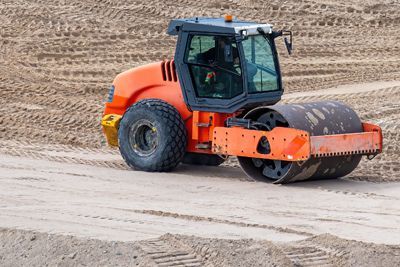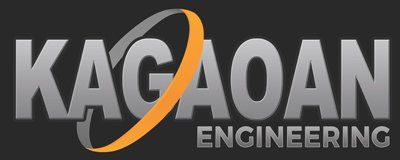Compacted Fill Consultants - NYC, Manhattan, The Boroughs, Nassau County, Suffolk County, Long Island, and New Jersey - Kagaoan Engineering

Compacted Fill Consulting
Welcome to Kagaoan Engineering, your trusted partner in geotechnical engineering solutions. We specialize in providing comprehensive services to ensure the safety, stability, and success of your construction projects.
One essential aspect of geotechnical engineering that we excel in is the analysis and implementation of compacted fill. We will explore compacted fill, how it is analyzed in peer reviews, and the importance of compacted fill peer reviews for various companies and situations.
Contact us for free consultation.
What is Compacted Fill?
Compacted fill refers to a material used to raise the ground level or create a stable structure foundation. It is an essential component in construction projects to improve soil load-bearing capacity, reduce settlement, and provide a level surface for building structures. Compacted fill materials typically include soil, gravel, or crushed stone, which are layered and compacted to increase density and strength.
Compaction is a crucial process in constructing compacted fill. It involves applying pressure to the fill material using mechanical equipment such as rollers or compactors. The goal of compaction is to remove air voids, increase material density, and enhance its stability. Proper compaction ensures that the fill material can support the weight of structures without settlement or deformation.
Analyzing Compacted Fill in Peer Reviews
Peer reviews are essential in ensuring the quality and integrity of geotechnical engineering projects involving compacted fill. During a peer review process, the compacted fill design, construction methods, and performance are evaluated by independent experts in the field. The analysis in peer reviews typically includes the following aspects:
1. Design Review: Experts assess the adequacy of the compacted fill design, including the selection of fill materials, layer thickness, compaction methods, and the overall stability of the constructed structure.
2. Construction Method Review: The construction process of the compacted fill is evaluated to ensure that the specified compaction methods and equipment were appropriately used to achieve the desired density and strength.
3. Performance Evaluation: The performance of the compacted fill is monitored and assessed to verify that it meets the project requirements in terms of settlement, stability, and load-bearing capacity.
4. Compliance with Standards: Peer reviews also check if the compacted fill construction complies with industry standards, regulations, and best practices to ensure safety and quality.
Companies or Situations Requiring Compacted Fill Peer Reviews
Various companies and situations benefit from compacted fill peer reviews to ensure the successful completion of construction projects and avoid potential risks and liabilities. Some examples include:
1. Infrastructure Developers: Companies involved in infrastructure development projects such as roads, bridges, airports, and dams often require compacted fill peer reviews to ensure the stability and longevity of the structures.
2. Real Estate Developers: Real estate developers undertaking large-scale construction projects involving compacted fill for foundations, basements, or retaining walls can benefit from peer reviews to safeguard their investment and mitigate risks.
3. Government Agencies: Government agencies responsible for public infrastructure projects seek compacted fill peer reviews to ensure compliance with safety standards, minimize environmental impact, and deliver quality infrastructure to the public.
4. Mining and Oil Companies: Companies in the mining and oil industries that require infrastructure for facilities, storage tanks, or access roads often need compacted fill peer reviews to assess the suitability and stability of fill materials in challenging geological conditions.
5. Environmental Remediation Projects: Projects involving the remediation of contaminated sites or land reclamation may require compacted fill peer reviews to ensure that the fill material used meets environmental regulations and poses no risks to human health or the environment.
Government Guidelines for Compacted Fill
Local, state, and federal regulations set requirements and standards for the use of compacted fill in construction projects to ensure safety, environmental protection, and compliance with industry best practices. Depending on the location and scope of the project, various regulatory requirements may apply. Here are some examples of local, state, and federal requirements for compacted fill:
Local Requirements
- Local building codes and ordinances may establish specific guidelines for the design, construction, and testing of compacted fill to ensure that it meets local standards for stability and safety.
- Local planning and zoning regulations may dictate the permissible uses of compacted fill in land development projects, including requirements for setbacks, height restrictions, and environmental considerations.
- Local environmental agencies may have regulations concerning the disposal of excess fill material, erosion control measures, and the protection of natural resources during the construction and excavation process.
State Requirements
- State departments of transportation (DOT) often have specifications and standards for compacted fill used in road construction and infrastructure projects. These requirements may include compaction specifications, layer thickness, and quality control measures.
- State environmental agencies may have regulations related to the use of fill material in wetlands, floodplains, or other environmentally sensitive areas to protect water quality, wildlife habitats, and natural resources.
- State licensing boards or regulatory agencies for engineering and construction professions may establish requirements for the qualifications and certifications of professionals responsible for designing and overseeing compacted fill projects.
Federal Requirements
- The U.S. Environmental Protection Agency (EPA) regulates the disposal and management of fill material containing hazardous substances under the Resource Conservation and Recovery Act (RCRA) and other environmental laws to prevent soil and groundwater contamination.
- The Federal Highway Administration (FHWA) sets standards and guidelines for compacted fill used in federally funded transportation projects to ensure quality, durability, and safety in road construction and embankment projects.
- The Occupational Safety and Health Administration (OSHA) establishes safety regulations for construction activities involving compacted fill, such as excavation and trenching operations, to protect workers from hazards and accidents on the job site.
It is essential for project developers, engineers, and contractors to be aware of and comply with relevant local, state, and federal requirements for compacted fill to avoid regulatory penalties, project delays, and potential liability issues. Working with experienced geotechnical engineers and consultants who are knowledgeable about regulatory requirements and industry standards can help ensure that compacted fill projects meet all necessary criteria and are implemented successfully within the regulatory framework.
In conclusion, compacted fill plays a crucial role in geotechnical engineering projects, providing a stable foundation for structures and infrastructure. Peer reviews of compacted fill designs and construction methods are essential to verify the quality, safety, and performance of the constructed fill. Companies and situations that benefit from compacted fill peer reviews include infrastructure developers, real estate developers, government agencies, mining and oil companies, and environmental remediation projects.
At Kagaoan Engineering, we offer expert services in compacted fill analysis, design, and peer review to ensure the success of your construction projects. Contact us today to learn more about our geotechnical engineering solutions and how we can support your project needs.

